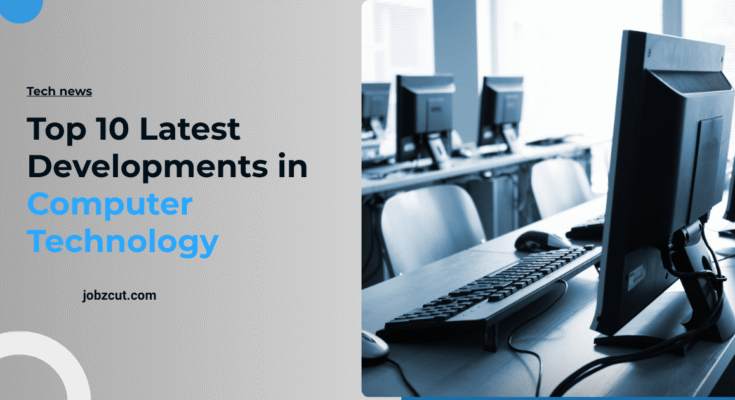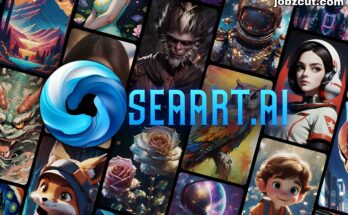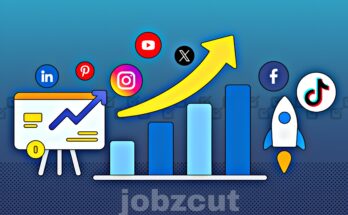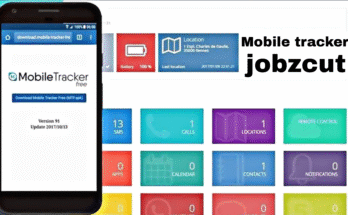As we navigate the final weeks of October 2025, the world of computer technology continues to accelerate at a breathtaking pace. From quantum leaps that could redefine computation to AI integrations that blur the lines between human and machine, these developments promise to transform industries, economies, and daily life. In this article, we’ll dive into the 10 most compelling stories making headlines right now. Drawing from cutting-edge research, corporate announcements, and global breakthroughs, these updates highlight the ingenuity driving our digital future. Whether you’re a tech enthusiast or a professional eyeing the next big investment, here’s what you need to know.
1. Google’s Quantum Computer Achieves “Quantum Advantage” Milestone
In a landmark announcement on October 22, Google unveiled a quantum computing breakthrough that has sent shockwaves through the scientific community. The company’s latest quantum algorithm executed a complex calculation 13,000 times faster than the world’s most powerful traditional supercomputer, demonstrating true “quantum advantage.” This feat, achieved through advanced error-correction techniques, could accelerate drug discovery and climate modeling by the end of the decade. While critics note its focus on a narrow problem, experts like Winfried Hensinger of the University of Sussex hail it as a pivotal step toward practical quantum applications.
2. IBM Leverages AMD Chips for Quantum Error Correction
Quantum computing took another stride forward on October 24 when IBM revealed that its key error-correction algorithms—essential for stabilizing fragile quantum states—can now run efficiently on conventional AMD field-programmable gate arrays (FPGAs). This hybrid approach bridges the gap between experimental quantum hardware and everyday computing infrastructure, potentially slashing costs and speeding up development. IBM’s Starling project, bolstered by this innovation, could make quantum tech more accessible to researchers worldwide, fueling advancements in cryptography and optimization.
3. Anthropic Secures Massive Google Compute Deal for AI Expansion
Anthropic, the AI safety pioneer behind Claude, inked a multibillion-dollar, multiyear pact with Google on October 24, granting access to up to one million Tensor Processing Units (TPUs) and over one gigawatt of power by 2026. This deal underscores the intensifying “compute arms race” among AI firms, where processing power has become the ultimate bottleneck. As Anthropic scales its models, this collaboration could supercharge ethical AI development, rivaling efforts from OpenAI and Microsoft while highlighting Google’s pivot toward infrastructure dominance.
4. Apple Ships U.S.-Made Servers to Power Apple Intelligence
On October 23, Apple CEO Tim Cook announced the shipment of advanced, American-manufactured servers from a new Houston facility to bolster its data centers. These machines are designed to underpin Private Cloud Compute and the on-device Apple Intelligence features rolling out across iOS and macOS. Amid rising geopolitical tensions over chip supply chains, this move emphasizes domestic production and enhanced privacy, positioning Apple to deliver more seamless AI experiences—from personalized Siri upgrades to spatial computing in Vision Pro.
5. ZTE Launches Co-Sight Super Agent to Pioneer Global AI Ecosystems
Telecom giant ZTE made waves at its Global Summit in Milan on October 7 by debuting the Co-Sight Super Agent overseas. This AI powerhouse, which topped the GAIA benchmark for agent technology, enables autonomous task-handling across industries like logistics and healthcare. By fostering open collaborations, ZTE aims to accelerate the “AI agent economy,” where intelligent software agents negotiate, learn, and execute on behalf of users—potentially revolutionizing enterprise automation.
6. TDK Unveils Analog Reservoir AI Chip with Real-Time Learning
Nostalgia meets innovation as TDK, the iconic audio tape maker, introduced an analog reservoir AI chip on October 2025 that learns in real-time and even outsmarts humans at rock-paper-scissors. Unlike power-hungry digital neural networks, this chip uses physical waves for computation, slashing energy use by up to 90%. Ideal for edge devices in IoT and wearables, it signals a shift toward “neuromorphic” hardware that mimics the brain’s efficiency, promising greener AI for consumer tech.
7. Stanford’s Wireless Eye Implant Restores Reading Vision via AI
A groundbreaking medical-tech fusion emerged on October 22 from Stanford Medicine: a wireless retinal implant that has enabled legally blind patients with macular degeneration to read again. Paired with smart glasses, the PRIMA chip uses infrared light and AI-driven signal processing to bypass damaged photoreceptors, delivering pixel-perfect vision restoration. This wireless marvel, powered by low-energy computer vision algorithms, could expand to broader sensory aids, blending bionics with machine learning for a new era of accessible computing.
8. Windows 11 October Patch Sparks Dev Environment Chaos
Microsoft’s latest security update, released in mid-October, has backfired spectacularly, crippling development tools in Windows 11 and prompting widespread rollbacks. Affecting Visual Studio and other IDEs, the patch exposed QA gaps in Microsoft’s update pipeline, eroding trust among enterprise users. As AI PCs gain traction—with neural processing units (NPUs) embedded for on-device inference—this glitch highlights the fragility of software ecosystems, urging faster fixes to keep innovation on track.
9. Global Backlash Against AI Data Centers Intensifies
From Mexico’s rural blackouts to Ireland’s water shortages, the AI data center boom is igniting fury worldwide as of October 20. Tech titans like OpenAI, Amazon, and Google are pouring hundreds of billions into these energy-guzzling behemoths, straining local grids and ecosystems. Innovations like water-recycling cooling offer hope, but activists demand stricter regulations. This tension could reshape data sovereignty, pushing for decentralized, sustainable computing models to balance AI’s promise with planetary limits.
10. OpenAI Acquires AI Startup for Seamless Apple Integration
In a strategic play on October 23, OpenAI snapped up a niche startup specializing in macOS-native AI interfaces, aiming to deepen ties with Apple’s ecosystem. This acquisition could embed ChatGPT-like capabilities directly into Finder and Xcode, enhancing developer workflows and user productivity. As Trump-era policies loom over tech exports, it also signals OpenAI’s bet on cross-platform harmony, potentially accelerating the fusion of cloud AI with personal devices.
These stories from October 2025 illustrate a tech landscape brimming with potential—and pitfalls. Quantum and AI dominate, but sustainability and ethics are rising imperatives. As computer technology evolves, one thing is clear: the innovations of today will redefine what’s possible tomorrow. Stay tuned, and consider how these shifts might impact your world. What breakthrough excites you most?



